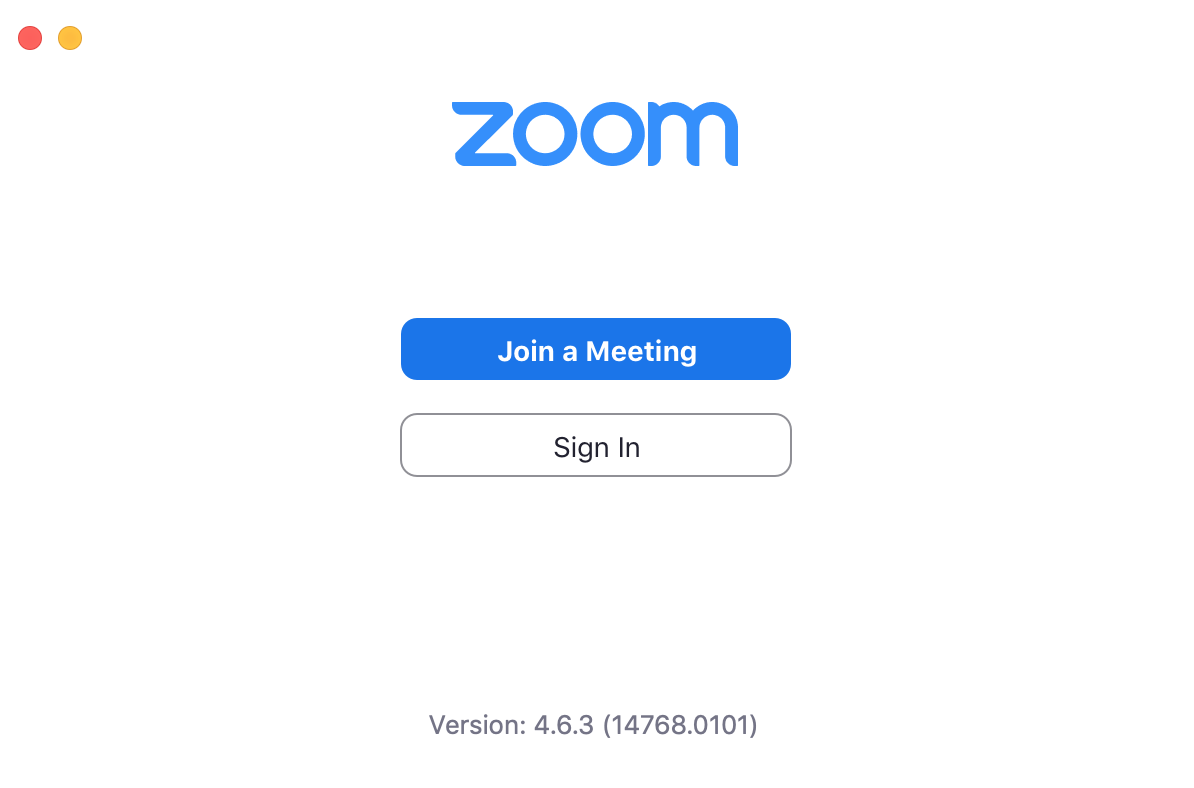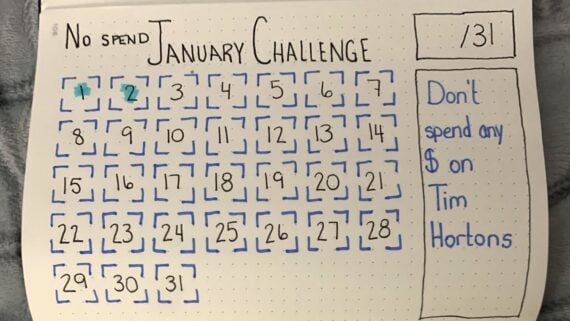Landing a job can be challenging under the best of circumstances, but add this bizarre kind of economy to the mix and job seekers may feel bewildered, if not hopeless. All is not lost, however, and though it may take longer to find work and need more creative effort, companies are still hiring — and even in what seems to be the worst of times, it’s important to stay active and searching, experts say. We asked those career advisers and human resources pros nationwide for tips on an employment search in times just like this. Here’s what they had to say; if you have your own tips or experiences to share, tell us in the comments. (Over 50? Check out these tips, too.)
Related: How to Build Wealth During a Recession
Make the Most of Existing Contacts

Networking has always been a fundamental first step in conducting a thorough job search, and perhaps now more than ever it’s critical to mine your existing contacts. “While many companies have paused their hiring, there are still openings, and they’re not always posted on job search websites,” says Jon Hill, chairman and CEO of the executive search and recruiting firm The Energists. “Your mentors, former colleagues, and other professional contacts may be aware of companies that are hiring and be able to point you in the right direction, and may also be willing to serve as a reference to get your foot in the door.”
Related: Industries That Would Benefit From a Recession
Don’t Limit Networking to Just Professional Contacts

When considering which contacts to reach out to about your current job search, think outside the box. “They say that everyone knows at least 300 people. Sit down and make a list of everyone you know, including your pastor, perhaps, or your child’s school teacher, or your doctor, or the receptionist at the job where you worked four years ago,” says Erica Moore-Burton, a recruiter, career coach, president of Round Hill Search and author of “The Little P.I.N.K. Book of Success.” “Make a list, and then reach out to everyone letting them know that you’re looking for work. People will be happy to hear from you in this current climate, and you will be at the top of their mind when it comes to any opportunities that they know of.”
Related: Job Search Tips From Experts
Do Send Cold Emails to Network Contacts

Though some may discourage this practice, writing cold emails to contacts as part of your networking efforts can help. “One advantage of cold emailing right now is that these are crazy times, and we all have something that’s bringing us together now,” says Allison McLean, career coach at the online training and mentoring site Springboard. But keep unsolicited emails short, professional, and with an obvious, actionable purpose. “It should have an ask in it. Say something like, ‘Hey, hope you’re doing well. I just wanted to reach out. I found your background really interesting. I’m currently looking for opportunities in this field, and I wanted to see if you’d be willing to chat with me about this and share your insights. Would you have 15 to 20 minutes to chat with me this week or next?’”
For more helpful job-hunting tips, please sign up for our free newsletters.
Get in Touch With Previous Employers

If you left a previous job on good terms, there may be opportunities with them now or in the future. “Rather than hiring someone new, you may be a proven entity for them for project work or a new type of opportunity,” Moore-Burton says. “Reach out to them and communicate any new skills that you’ve picked up since you left, and pass along an updated copy of your résumé.”
Related: Secret Tips to Get Your Dream Job
Reach Out to Recruiters

It is during times such as these that recruiters are “building their pipelines,” McLean says. “They’re actively talking to people, reaching out, building relationships. This is so that when they get that green light to hire again, they have people to fill the jobs. So now is a great time to reach out to recruiters and start having conversations.”
Trending on Cheapism
Search Intelligently

Be wise about where to looking for a job. Hill gave an example from looking for work during the worst of the economic crisis caused by the coronavirus pandemic, “a bad time to be looking for work in the food service or tourism industry, for example,” but health care industries were overwhelmed at the time and needing people. Hill also suggested keeping in mind that “while you can’t apply for some jobs without specialized training, experience in areas like customer service and personnel management can be useful in a wide range of fields.”
Explain How You Can Help a Company Recover

Almost anyone can write a basic cover letter to accompany a job application. Far fewer applicants are insightful enough to use their cover letter as an opportunity to explain how they might dive in and help a company recover from an economic downturn. “Pitch ideas for the future in your cover letter, focus on thinking ahead and identify how you can help the organization to which you are applying to recover or flourish,” says Wanda Gravett, academic program coordinator for Walden University’s master’s program in human resources management.
Don’t Forget the 3 Cs

Another important consideration when crafting a cover letter: Follow the rule of the three Cs. “Concise writing, clarity, and connection,” is how they’re described by Jennifer Lee Magas, vice president of Magas Media Consultants. “Talk about your leadership roles, internships, and accomplishments to tell how you have made a difference. Organize your thoughts using the PAR acronym, or ‘Problem, Action, Results.’ Quickly illustrate your worth by outlining a problem you dealt with at work, what specific action you took to solve that problem, and how your solution ultimately benefited the organization in terms of saved money or time.”
Sign up for our newsletter
Put Extra Effort Into Proofreading and Tailoring Your Resume

You’re likely to be competing with a flood of applicants, so don’t make mistakes that eliminate you from consideration early on. “Make sure your résumé is perfectly tailored to each job you find. It’s especially important to have a well-written and accurate résumé in a competitive job market, since a higher percentage of the applicants will be eliminated at this stage,” Hill says. “You don’t want to sabotage your own efforts with something as easily fixable as a typo.”
Make Sure Your Resume Is Written for Key Audiences

It’s still possible to make your résumé stand out even in tough competition if it’s written for three audiences: applicant tracking software, recruiters or human resources representatives, and direct supervisors. “A résumé full of keywords taken directly from the job posting may get you through employer software, but it won’t impress HR or the direct supervisor,” says Steph Cartwright, a certified professional résumé writer for Off the Clock Résumés. “Your résumé needs to showcase your skills in action throughout your work history, how you’ve contributed to achieving organizational goals, and the unique value you offer.”
Update Your Computer Software

This may seem like a minor point, but with many company executives still doing lots of work from home, it’s important to be sure potential employers can reach you easily for a virtual interview. “Update your computer software and apps so that you have the technical capability to meet with potential employers via common online meeting forums including Microsoft Teams, Zoom or Skype for Business,” Gravett says.
Related: How Finding a Job Has Changed in the Past 50 Years
Use Technology to Set Yourself Apart

While on the subject of technology and its role in a job search: Consider how it can help you stand out from the crowd. “Create a short, professional video of yourself, including your name and professional skill set, and explain that you’re seeking opportunities,” Moore-Burton says. “Go through your hard and soft skills, and use this as a personal marketing tool for your social media platforms. This is a creative approach that may not rest well with many, but for the bold it is certainly a tactic that will be remembered for the right reasons if done tastefully.”
Polish Digital Interviewing Skills

With many interviews taking place by Zoom or Skype, put extra effort and thought into how you present yourself in online video. “Consider your camera and lighting setup, think about your background, dress the part, make sure the kids and pets are as quiet as possible, and make the time to practice with a friend who will give you candid feedback,” says Lisa Lambert, co-founder of the consulting firm The Spotlight Trust.
Present a Consistent Narrative Online

Landing a job is all about earning trust. If a hiring manager or recruiter doesn’t trust that you’re going to add value to the organization, why would they want to hire you? That’s why it’s critical to have a consistent, professional profile across your social media presence. “From your LinkedIn profile, to your digital portfolio or résumé, to how you show up in the interview — does the story that you want hiring managers and recruiters to remember resonate and ring true across your hiring footprint?” Lambert asks.
Choose Words Carefully

While ensuring that your online messaging is consistent, take a moment to also polish and enhance the language you’re using. “Recruiters are looking for simplicity and easy keywords when they’re reviewing LinkedIn profiles,” Magas says. “Brevity is important in your LinkedIn profile, but your list of accomplishments can never be too long.”
Related: How Social Media Can Land or Lose You a Job
Use LinkedIn Proactively

It’s also important to showcase accomplishments and professional activities regularly on sites such as LinkedIn. “Post status updates about important conferences you’re attending or events you’re hosting. This makes you look like a solid professional in your field. Use visuals in your status update of the event or conference you attended to draw attention to your profile. Take recommendations seriously. If you’ve had a positive experience with a coworker, use that connection to build up recommendations on your profile,” Magas says. “Writing a recommendation for someone usually results in receiving one, so take the opportunity to write a recommendation for someone seriously so that that person can vouch for you in the future.”
Be an ‘Additive’ Networker

Circling back to networking: As you prepare to reach out to people in your network, consider how you can provide value to them. “No one wants someone who is just asking for favors,” Lambert says. “By being thoughtful, researching those you’re contacting, and focusing on generously providing value to them, you’ll build the network you need to land the jobs that are being filled before they reach the job boards.”
Take New Courses and Increase Professional Skills

In a recession, the market is even more competitive, so your skills must be up to par. “With companies offering free online courses right now, take advantage of it. These are great résumé and LinkedIn profile boosters,” says Wendi Weiner, a personal branding and career expert who created the site The Writing Guru. “They also form a compelling proposition for you to leverage in an interview — you are thriving and focusing on improving your skills and knowledge right now instead of binge-watching new documentaries on Netflix.”
Branch Out in Your Search

Don’t focus on applying for the same roles every time. “Don’t be afraid to send out your job applications to different types of companies and roles. Just make sure your résumé is about outcomes, not actions,” suggests Jes Osrow, head of learning and organizational development for the health-care tech company Quartet and co-founder of The Rise Journey, which helps new companies build teams. “Think proactively about why someone with a different background might be an asset to a team or organization and put those ideas into your résumé, cover letter, and personal website.”
Have a Personal Website

Now more than ever, it’s important to differentiate yourself, and a personal website is one of the best ways to do that. “Keep the website light, simple, and focused on where you want to be going,” Osrow says.
Consider Temporary Roles

Even when companies pause direct hires, there still may be contract and temporary opportunities available. “Open yourself up for temporary roles. While they may pay less than what a full-time salary would pay, some income is better than none,” Moore-Burton says. There are some great staffing firms out there that offer benefits for their temporary workers once you’ve been placed on an assignment. Some notable options include Vitamin T; Creative Circle, and Robert Half.
Keep Applying

Rejection is always hard, but don’t let it discourage you — and don’t give up. “The people who keep applying for jobs will be the first to hear about new opportunities. I recommend applying to 10 to 15 jobs per week,” says Caitlin Proctor, a career expert with the résumé-services company Zipjob.






